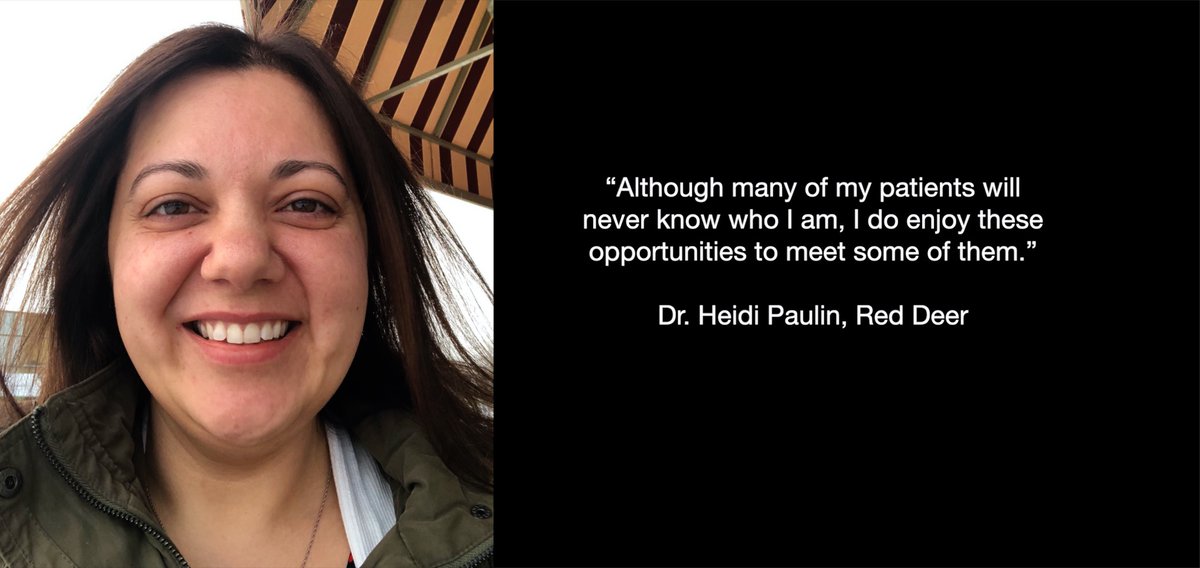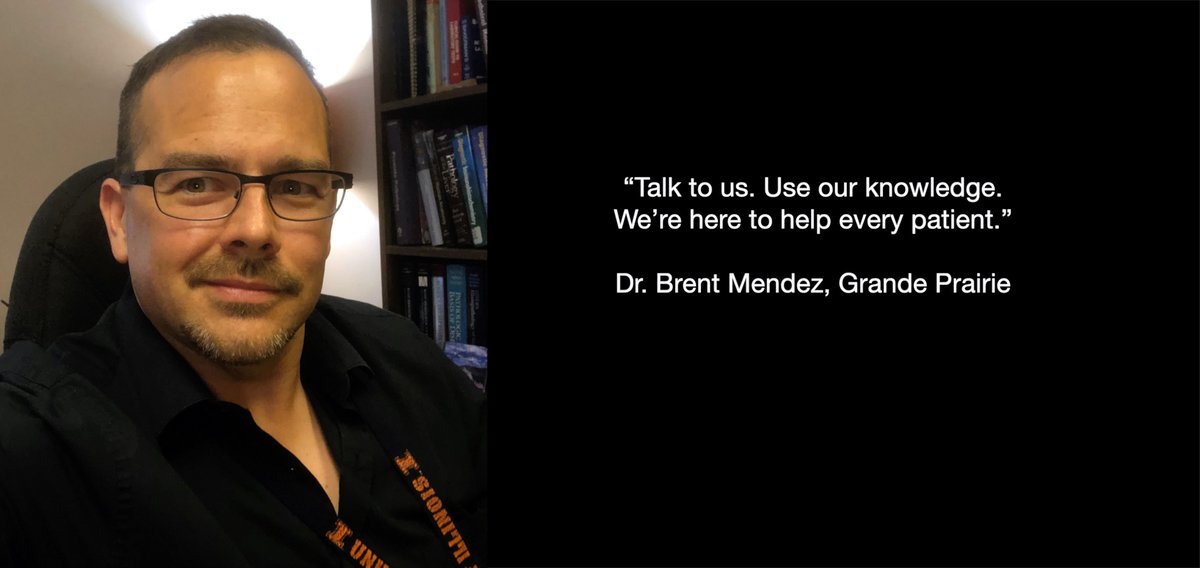As with any medical specialty, laboratory medicine practices look different depending on where in Alberta the physician is working. Outside of Calgary and Edmonton, most laboratory medicine physicians are general or anatomical pathologists, and their work supports the rural, community and small city hospitals and labs throughout Alberta.
Lab services in Alberta are provided by Alberta Precision Laboratories and DynaLIFE Medical Lab. Both organizations work collaboratively to ensure all Albertans have access to quality lab services in communities across the province. Some specialized services or tests, such as autopsies, are done exclusively in Calgary and Edmonton, but most of the day-to-day results are read in regional centres.
Dr. Heidi Paulin has been in Red Deer for six years. She is a general pathologist and the Regional Laboratory Medicine Site Chief, Red Deer Regional Hospital, Alberta Precision Laboratories. As a general pathologist, she has a broad range of practice, including anatomical pathology, hematopathology, transfusion medicine and a bit of biochemistry and microbiology. Although Red Deer is a smaller centre than Calgary and Edmonton, it is large enough to offer a variety of professional opportunities.

Most of Dr. Paulin’s practice involves tissue diagnoses, but she does perform the bone marrow biopsies herself, including the conversation with the patient about the risks and benefits.
“Lab medicine physicians play an important role in every patient’s care,” says Dr. Paulin. “Although many of my patients will never know who I am, I do enjoy these opportunities to meet some of them.”
In her role as Regional Laboratory Medicine Site Chief, Dr. Paulin has medical oversight for several labs in her zone and an important role to play in local and provincial service coordination. She notes that laboratory medicine physicians are fortunate to be working in this type of coordinated service structure, which has a positive impact on the health of all Albertans.
Collaboration encouraged
Dr. Brent Mendez is a general pathologist in Grande Prairie. He’s the Regional Laboratory Medicine Site Chief at Queen Elizabeth II Hospital, Alberta Precision Laboratories. Like Dr. Paulin, he loves the community he works in and the variety in his practice.
Quality control is an area of focus for Dr. Mendez. In his role, he ensures everything is up to accreditation standards and any areas of concern are immediately addressed. In his view, the most important outcome is ensuring every result provided by the lab is reliable.

Dr. Mendez practiced in the USA before moving to Canada. One of the best things about his practice in Alberta, is the level of collaboration he experiences daily due to a coordinated provincial system.
“My practice in Canada is the most satisfying it’s ever been because I feel like I’m working in a team environment,” says Dr. Mendez. “If I have a question or need support, I can get it from the right expert, no matter which center they work in, in a timely manner.”
Both Dr. Paulin and Dr. Mendez stress the importance of relationships in the work they do – putting a face on pathology and letting physicians know how lab support and resources are available for their patients.
“Talk to us. Use our knowledge. We’re here to help every patient,” exclaims Dr. Mendez.
Lab medicine key in Alberta’s COVID-19 response
Dr. Barbara Popma is an anatomical pathologist. She works out of Lethbridge, providing results for physicians in the southwest part of the province. In her 40 years of practice, she’s seen many changes to laboratory medicine and feels the Alberta lab system is doing its best work now – everything from procurement and quality control to policies and procedures.
“Alberta’s rapid response to the 2020 COVID-19 pandemic was the best in the country, which was possible because laboratory medicine in Alberta is a coordinated system,” explains Dr. Popma. “Alberta did not face the same challenges seen in provinces with more fractured lab systems.”
All three physicians are happy to share their expertise with their colleagues in laboratory medicine and other specialties. Helping other physicians diagnose and treat their patients matters to them, so they work hard to ensure the system supports best practices in testing, quality control and patient care.
Banner image credit: Kitt KS, Pixabay.com

